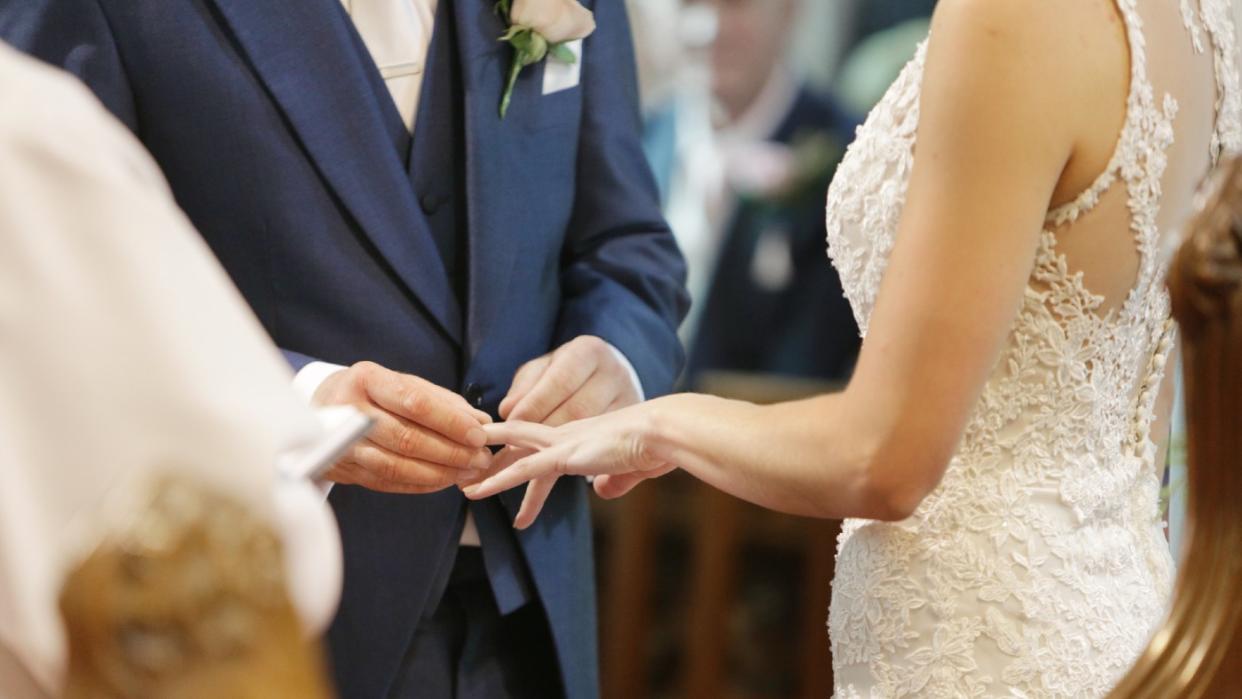The pros and cons of marriage

January has the unfortunate reputation as being the month of divorce.
The first Monday of the year in particular has "long been known" among solicitors and counsellors as "Divorce Day", said the BBC, coming as it does after the "pressures of the festive period".
More and more couples in the UK are also choosing not to marry in the first place. The last census for England and Wales showed that the proportion of adults who have never been married or in a civil partnership increased from 26% in 1991 to 38% in 2021. "The number of people getting married is at the lowest rate on record," said the Office for National Statistics.
There are a number of reasons for the decline.
Pro: ‘formalising’ relationship
For many people, formalising a relationship in the eyes of the law – or God – is a way of taking a partnership to the next level. "There is something to be said about a true union," Barbie Adler, founder of matchmaking company Selective Search, told Brides magazine. "Marriage is the ultimate commitment."
According to the magazine, even couples who have lived together for years "say they feel more at ease once they said their vows". And "for many, marriage brings a sense of security, a grounding they can't get any other way".
Con: old-fashioned institution
Nearly a quarter of Brits surveyed by YouGov last summer thought marriage was an outdated institution. "Back in the 1400s when people were getting married, it was 'until death do you part'. Because people would get married as teenagers and somebody would die in their 20s or early 30s," wrote relationship coach and author David Wygant in an article for HuffPost. But most people live "a lot longer", and many "grow" and "evolve" in ways that mean they and their partner "no longer work well together".
Critics also point to the inherent sexism in some wedding traditions, such as a bride wearing a white dress to symbolise virginity, a groom asking a father's "permission" to marry his daughter, and women taking their husband's surname. It wasn't until 2021 that mothers of brides and grooms in England and Wales were included on marriage certificates alongside fathers. Changes in attitudes towards living together and having children out of wedlock also offer greater freedoms.
Marriage "no longer has the same sanctity" it perhaps once did, and many who are not "concerned with the religious connotations" may not see the point, said the law firm Grayfords. Overall, many couples simply don't "feel the need" to be married, which is a "sign of the changing times".
Pro: financial security
Married couples can pass money and assets to each other tax-free, which can save a "significant amount of money if you want to sell assets that would incur capital gains tax", because "splitting or co-owning an asset with your partner would double the tax-free portion", said Investors' Chronicle. Other financial benefits include the marriage tax allowance, a tax perk that allows a spouse to use a portion of their partner's personal allowance "if they earn less than the value of the personal allowance and you are a basic-rate income tax payer", the magazine explained.
People who are married or in civil partnerships also have more financial protection if they separate than unmarried couples who split. In the event that "your marriage or civil partnership ends, you can ask for financial support – known as 'spousal maintenance' – from your ex-partner as soon as you separate", in addition to any child maintenance, said Citizens Advice. By contrast, unmarried couples don't have to support each other financially after splitting.
And marriage or civil partnerships can provide a degree of financial security for a spouse whose partner dies. Unmarried couples do not automatically inherit anything when their partner dies if there is no will in place, unlike their married peers. Surviving spouses may also be entitled to their partner's state pension after they die, depending on their level of National Insurance contributions.
Con: divorce statistics
High divorce rates may be putting some people off marriage. "Studies have shown that children of divorce in Europe and North America are less likely to marry and more likely to cohabit with a partner instead," said the research centre Population Europe.
ONS data shows that 113,505 divorces were granted in England and Wales in 2021. That total represented an increase of 9.6% on 2020, but many family court activities were delayed or suspended in 2020 as a result of the pandemic and that may have contributed to the increase.
Pro: excuse for a party
Weddings are a rare chance to bring a couple's nearest and dearest together to celebrate. For many couples, it is one of the best days of their lives.
Weddings can be a "powerful" way for couples to "stand up in front of their family and friends and declare their love for one another", said Brides magazine. "It’s a way to bring your partner into your family officially and tie your two worlds together."
Con: weddings costs
The average cost of a wedding in 2022 was £18,400, according to a survey by Hitched published last year, up 6% from 2021.
With the cost-of-living crisis hitting households nationwide, a growing number of couples may be unwilling or unable to splash out on their big day. The cost of a wedding, which is a "huge expense", can slip down the list to make way for "competing saving priorities", said law firm Grayfords. For many, the costs of buying or renting a house or having children are more important.

